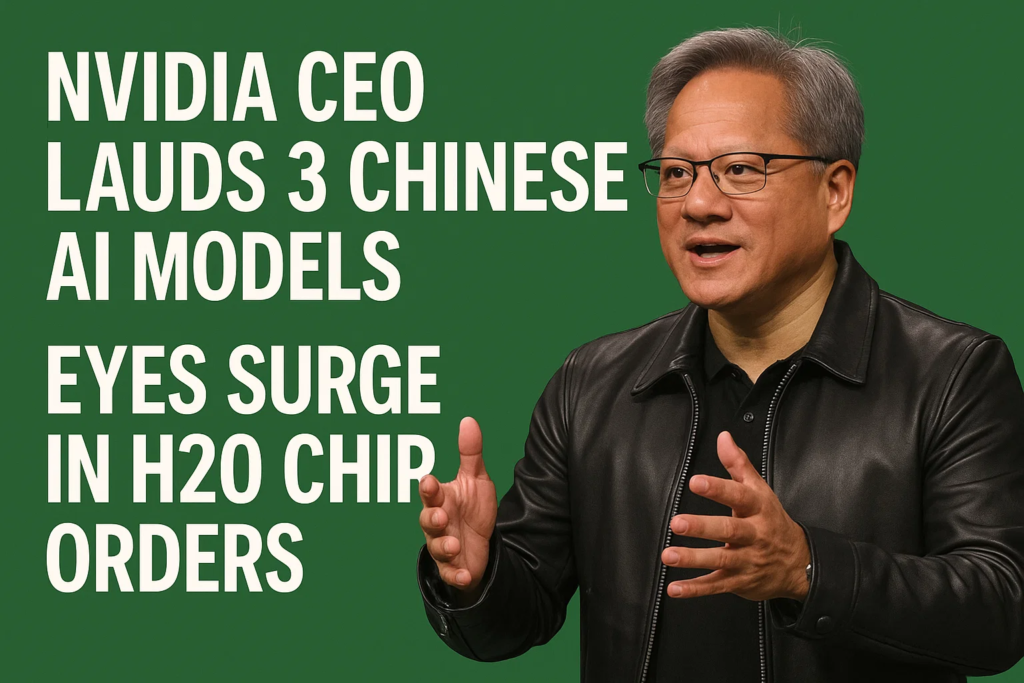Nvidia CEO Jensen Huang called China’s artificial intelligence models “world class” during a supply chain exhibition in Beijing on Wednesday. He specifically cited Deepseek, Alibaba (NYSE: BABA), and Tencent for their rapid advancements in AI. Huang’s remarks reflect a shift in tone, as U.S. firms navigate complex export rules while recognizing China’s expanding role in frontier technologies.
This appearance marks Huang’s third trip to China in 2025, underlining the importance of the region to Nvidia’s global strategy. It also follows his recent meeting with U.S. President Donald Trump, underscoring the delicate balance Nvidia must maintain between two superpowers vying for AI dominance.
In an interview with CCTV, Huang stressed China’s importance to American firms, describing the market as “massive, dynamic, and highly innovative.” His comments come at a critical time, with Nvidia reentering the Chinese market with renewed approval to sell its AI chips.
H20 Chip Sales Resume Amid Policy Talks
Nvidia confirmed that it will resume shipments of its in-demand H20 AI chips to China, following productive dialogue between U.S. and Chinese trade officials. Huang explained that recent changes in export policy stemmed from “constructive and positive discussions” on technology controls, including negotiations involving rare earth elements.
The green light to resume sales is expected to unlock a surge of demand from China’s tech giants.
Key developments:
- H20 chip orders must be cleared by U.S. regulators.
- Nvidia anticipates fast-tracked approvals.
- ByteDance and Tencent are reportedly preparing applications.
However, ByteDance has publicly denied submitting applications at this stage, while Tencent has yet to comment. Huang noted there is already a substantial order backlog, suggesting pent-up demand.
New RTX Chip Tailored for Chinese Market
To further align with U.S. export controls, Nvidia has revealed plans for a new graphics chip — the RTX Pro GPU — designed specifically for the Chinese market. The chip is engineered to comply with U.S. regulations while addressing the growing computational needs of Chinese AI developers.
The RTX Pro GPU reflects Nvidia’s broader strategy: building compliant solutions that preserve access to a vital region without violating trade restrictions.
What’s Next:
- Closed-door media briefing with Huang in Beijing later Wednesday.
- Potential acceleration of chip deliveries based on U.S. licensing.
- Broader implications for AI development in a divided global tech landscape.
As Nvidia navigates between innovation and international policy, its China playbook may serve as a model for other U.S. firms in similar cross-border situations.


